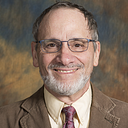Mendel Letters 68: Burshtyn, Ukraine

I once asked your father Zayde Solomon where he was born. His response was “It depends.” “It depends,” I said. “How?” “It depends,” he replied again. “Sometimes it was Austria, sometimes it was Poland, and sometimes it was Russia, so it depends.” The village of Burshtyn in the Eastern European Jewish Pale where he lived in the last two decades of the 19th and the early years of the twentieth centuries was a contested area before, during, and after World War I and II and national boundaries shifted with the treaties that ended the wars. With the collapse of the Soviet Union in the 1990s, Burshtyn “moved” again, this time to an independent Ukraine.
I was thinking about this when Russia invaded Ukraine in the last week of February. I did a Wiki search on my computer and checked Google Maps and to my surprise and I am sure yours there is still a Burshtyn in Ukraine. It is about 60 miles south of Lviv, the largest city on the present day Ukrainian-Polish border. We knew the local Jews, including our family members, were slaughter by Nazi German forces and Ukrainian allies during the European Holocaust, but did not know that the town still exists. The current population of Burshtyn is less than 15,000 people, though it is considered a small city. No Jews live there now.

In the 19th century Burshtyn was a major Jewish shetl. In 1880, about the time Zayde Solomon was born, the population of Burshtyn, less than 4,000 people and more than 50% was Jewish. The Jewish population started to decline after 1900 as more and more people moved to the United States. In July 1942 there were still 1,700 Jews in Burshtyn when Germany invaded. That included your grandfather, one of your aunts, and two of your cousins. German troops and Ukrainian auxiliary police beat Jews in the streets of Burshtyn and ordered community leaders to the synagogue where they were beaten and their beards were shaved off. Starting in September 1942 Jews were either killed in Burstyn or shipped to a larger ghetto in Rohatyn, about 12 miles north, to await transport to the Belzec death camp.
An unfenced small cemetery with about 350 grave markers is all that remains of the Jewish past. Parts of it are severely overgrown and are used to graze cattle.

Burshtyn is located on the Hnyla Lypa River, a tributary of the Dniester River. Hnyla Lypa means “rotten linden tree” in Polish and Ukrainian. It is a fitting name. Today, Burshtyn is best known as the home of the dirtiest coal-burning power plant in Europea. Ukrainian power plants produce more toxic heavy metal pollution than the entire European Union combined.

A small historical “fun-fact” about Burshtyn; Franz Xaver Mozart, the son of composer Wolfgang A. Mozart, briefly lived thereat the beginning of the 18th century when it was part of the Austro-Hungarian Empire. Franz was a pianist, a piano teacher, and a small time composer.
You definitely won’t believe this but the current President of Ukraine is a Jew.
Your son
Hard copies of these typed letters were discovered in an old camp trunk in the basement storage facility of one of the few buildings that remain standing in this Brooklyn neighborhood. The building is quite decrepit and is scheduled for demolition. The letters were found in November 2048 by a teenager who believes they were written by his great-grandfather. The letters are addressed to Mendel, the letter writer’s father, who appears to have been dead for at least six years when his son, whose name we are unsure of, started to write him. The son appears very agitated in some of the letters. With permission from the family, we are publishing them on the date they were written, only 28 years later.
Follow Alan Singer on twitter at https://twitter.com/AlanJSinger1
